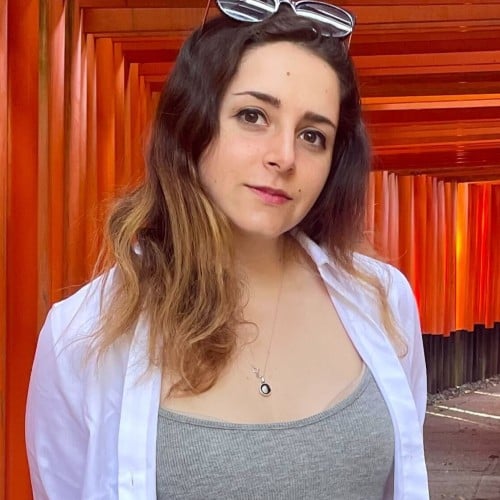
Renowned pianist Sohn Min-soo’s key advice for aspiring musicians: discipline, pride, sensitivity, openness
- The Korean-American artist, who is now a professor at the New England Conservatory, has spent the past 14 years nurturing the next generation of pianists
- Every week, Talking Points gives you a worksheet to practise your reading comprehension with exercises about the story we’ve written
 Sohn Min-soo was already dedicating his time to mastering the piano at the age of three. Photo: Kim Shin-joong
Sohn Min-soo was already dedicating his time to mastering the piano at the age of three. Photo: Kim Shin-joong Even at the age of three, Sohn Min-soo was already dedicating his time to mastering the piano, setting him on a path to becoming a world-renowned musician.
Now 47 years old, Sohn has transitioned from successful pianist to piano teacher, and he is passing on his musical gift to the next generation.
Last month, he performed a recital at the Hong Kong Arts Festival. During his visit to the city, local pianists also had the chance to be his students for a day as he conducted a masterclass.
Singer Kiri T on the ups and downs of Hong Kong’s music industry
Drawing from his 14 years of teaching experience, Sohn stressed that someone’s age should not determine how good they will be at playing the piano.
“Sometimes, a 13-year-old pianist can surprise me with the most compassionate feelings about music,” the Korean-American musician pointed out.
“There is a saying that you should wait until you’re 40 years old before you tackle [Beethoven]. But I was listening to this 13- or 14-year-old boy playing this piece, and he was playing like he was 70 years old.”
Discipline, pride and sensitivity
Last year, Sohn became a professor of piano at his alma mater: the New England Conservatory, located in the American city of Boston. His pupils now range from first-year to master’s students, but in the past, he has also taught pupils as young as 12 years old.
Though the piano is a fairly popular instrument among young musicians, Sohn recognised that mastering it is no simple feat.
“There are a lot of struggles in the journey of being a pianist. There are a lot of failures and, sometimes, very painful experiences,” he said.
Violin virtuoso Hannah Tam on confidence and her career
Across the board, Sohn said that the first building block for success in classical music is discipline in your practice: “Without that, it’s not going to happen.”
“You have to become self-disciplined. And also, you have to be open-minded, adapt and adjust it constantly ... And also you have to study the history of music.”
With discipline as a baseline, Sohn said that he has seen two additional qualities in his most successful students: pride and sensitivity. “[It’s not that] you’re arrogant or you have an empty ambition,” he explained. “You have to have a humble dignity towards music – and that becomes your pride at the end.”
“Sensitivity is something that I think is hard to teach,” Sohn went on. “But it’s also the curiosity that, if you look at something, then it always has to lead to another question.”
Open-minded learning process
The professor also emphasised the importance of collaboration and open dialogue between teachers and students about music and the learning process.
“I can share my thoughts on some Impressionist music,” he said. “Usually in my studio, there [is a lot] of dialogue, lots of conversation about music, and we share our ideas.”
“You can learn so many things from everyone,” he said, adding that he encourages his students to be open-minded and learn from different points of view. Learning from “every person that you meet” and trying to discover something new each day will benefit your music skills.
‘Guts (spilled)’ review: Olivia Rodrigo’s bonus tracks elevate the original album
While his primary job is to teach his students piano, Sohn said he would also sometimes play the role of “psychiatrist” because the young musicians’ skills could often be affected by personal problems, which Sohn could hear in their music.
“If they are breaking up with their boyfriend or girlfriend, it shows in their music,” he said. “Sometimes, I stop their playing and ask them what happened. And then it’s almost like a doctor-patient privilege: things that we talk about in my studio, it doesn’t go out.”
Sohn said this aspect of his job helps him cultivate a deeper relationship with students, especially those who tend to be “really polite” and are less willing to open up. He hopes to continue helping his students grow in every aspect of their lives, one key lesson at a time.
To test your understanding of this story, download our printable worksheet or answer the questions in the quiz below.
